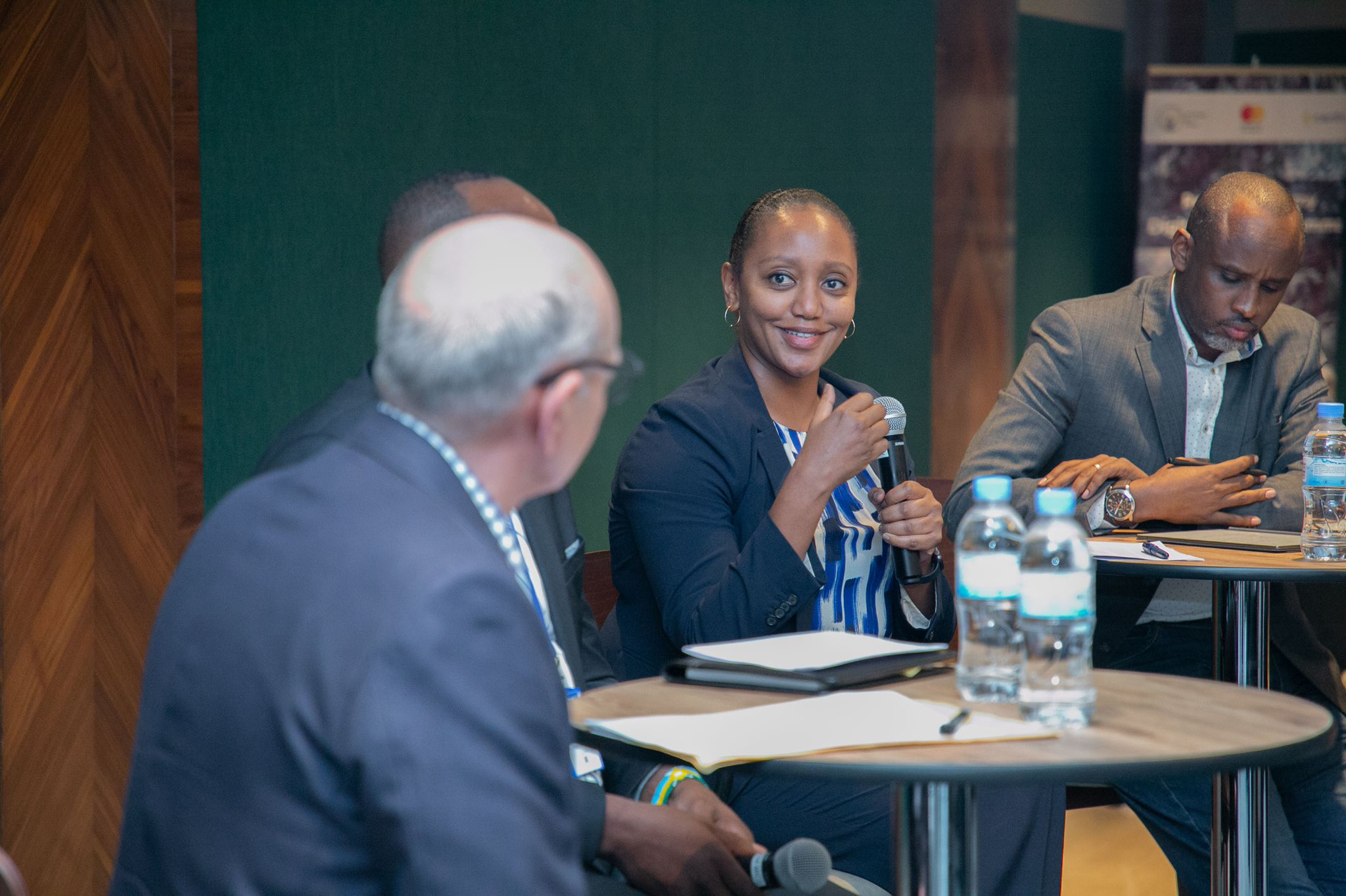

Data-driven decision-making (DDDM) refers to making decisions based on hard data as opposed to intuition, observation, or guesswork.
The value of data-driven decisions usually depends on the quality of the data and its analysis and interpretation.
Cenfri, an independent African economic impact agency that aims to boost economic growth and increase sustainable development in emerging markets has embraced that and decided to play its part to inform public and private institutions on how best they can use and manage their data to make decisions.
The organisation is implementing Rwanda Economy Digitalization Program in partnership with MasterCard Foundation as funding partners as well as the Ministry of ICT and Innovation (MINICT) from the Rwandan government side.


Attendees follow a panel discussion that brought together different people concerned in data management and ICT on July 25. Photo: Craish Bahizi.
According to Fiacre Niyigena Mushimire, Policy Lead at Cenfri, the programme aims to help government and private sector leverage the existing data sets to improve how they make decisions.
"As an example,” he said. "Every year, the government decides on where a road is going to be established. How do they know that a certain road is more important than the other? What is the basis? Often they take decisions but they don’t necessarily have figures behind them. There have to be reasons why it is done. Often it is intuition or pressure, but they should have actual tangible metrics or figures; real numbers.”
"That’s what the program is about,” he continued. "We look at the data that you have and we ask you about your policy as well as business priorities and we start to measure how these key factors correlate. We give you the insights so that you can make decisions knowing well the figures behind them.”
Mushimire also noted that they offer training on data analysis to people in charge of managing data at different public and private institutions so that even three years after the program ends, its impact can sustain.
He added: "The idea is to understand the data value chain. If businesses and governments could have a well mapped out data strategy, then anyone would know what kind of data is available for them to use.”
On the night of July 25, Cenfri hosted a panel discussion that brought together different people concerned in data management and ICT. They are also working with them in their program.
Jean Claude Munyangabo, CEO of BK TecHouse, a FinTech company and subsidiary to BK Group, was a panelist.
Tackling on the importance of data, he said that the company has ventured into big data analytics where they collect data from untapped market ecosystems; agriculture, education and civil society and analyse them to be used by financial institutions and different development partners.
"We create these data analytics to inform financial institutions on the financial needs that are in those markets. We come up with credit scoring to profile, for example, the farmers who are in those industries and invite financial institutions to develop and design financial services to those untapped industries,” he said.
The organisation is implementing Rwanda Economy Digitalization Program in partnership with MasterCard Foundation as funding partners as well as the Ministry of ICT and Innovation from the Rwandan government side
He said that while interpreting data, they use Artificial Intelligence and machine learning as algorithms that assist in decision making.
Innocent Bagamba Muhizi, CEO of Rwanda Information Society Agency (RISA), tackled data classification as something that is needed, declaring that they are working on it.
He noted that there is data that falls into different categories (public, personal, confidential, sensitive) and hence need to be classified in data sets for organisations or individuals to be able to manage them.
About data sharing, he said there is a need of deep analysis and understanding on what type of data that an organisation can share an agreement between the parties sharing data, adding that having people who are able to interpret the data from technical jargons, making sure that it’s something that is understandable by any layman, is also an important key.
Yvonne Manzi Makolo, the CEO of RwandAir explained that data collection and analysis is critical to the successful operation of the airline industry. She suggested that mastering the use of data to understand and respond to customer experience is the next data frontier of data for the industry.


